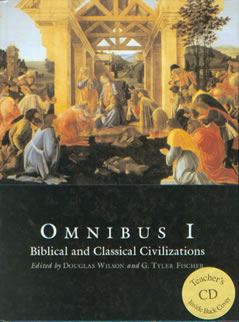I wrote this a few years ago. But yesterday while doing some clerical work I listened to a horrible and false seminary presentation regarding”the New Perspective” and N. T. Wright, purportedly (and falsely) from a “Reformed” point of view. Rather than waste my time dealing with it, I thought I would just re-post this.
 Remembering the Christian Departed
Remembering the Christian Departed
by N. T. Wright
(Harrisburg, PA: Morehouse Publishing, 2003)
96 pages
$10.00
Bishop Nicholas Thomas Wright of Durham has a reputation as a first-rate Evangelical apologist (in the wider British sense of the word, “Evangelical”), historian, and Bible scholar, whose work on Jesus and Paul has earned a wide hearing. However, this short work shows him not in the academy doing history and evangelism but in the Church applying his Biblical knowledge to liturgical and pastoral issues. As an American Presbyterian trying to understand what Wright is addressing as a British Anglican, it took me awhile to get a full appreciation (assuming I have attained such a thing) of Wright’s situation. The book reads like a theological tract at first and then addresses an issue in the Church. But, of course, the theological tract didn’t appear simply because Wright felt like spilling out a few pages from his systematics notes. The liturgical calendar issue, with all its implications, is what provoked the tract.
The issue is this. In Britain, at least (I have no idea how widespread this is globally in the Anglican communion), All Saints’ Day (November 1) has been supplemented with an All Souls’ Day (November 2) and even a “Kingdom Season” before Advent in which worshipers are to meditate on their future hope of “heaven.” The impetus for the November 2 day seems to be that celebrating the sure salvation of the saints seems awfully exclusive, and some want to hold up hope for souls in general. Yet, ironically, as Wright points out, the “hope” for souls actually seems part of a lessening of hope for the saints. The Roman Catholic doctrine of Purgatory is being re-animated in many Anglican communions. The hope of the saints is not the Biblical “sure and certain hope,” but a vague continuing journey in a disembodied state.
Of All Souls’ Day, Wright tells us, “After attending several of these annual events, I got to the point a few years ago where I decided that, in conscience, I could do so no longer” (p. 47). He obviously feels quite strongly about these issues and has had to deal with them personally. Of course, Wright realizes that the Church calendar itself is a matter of convention and is only as valuable as wise pastoral practice:
There is nothing ultimately obligatory for a Christian about the keeping of holy days or seasons. Paul warns the Galatians against adopting the Jewish liturgical calendar (Galatians 4.10). Elsewhere he declares that those who observe special days do so to honor the Lord, and that those who regard all days alike do so equally in honor of the Lord (Romans 14.5-6). However, many churches have found that by following the liturgical year in the traditional way they have a solid framework within which to teach and live the gospel, the scriptures, and the Christian life (p. 56).
Wright sees that somehow a nineteenth-century revival of Medieval Roman Catholicism within Anglicanism has coupled with Modern Liberalism to give us, at least by strong implication, purgatory for everyone, though a kinder gentler Purgatory that “isn’t very unpleasant, and … certainly not punitive” (pp. 12-13).
Wright obviously wants, instead, the Gospel for everyone, and sees both the Anglo-Catholicism and the liberalism, to be threats to pastoring God’s people. He tries very hard to be calm and persuasive rather than polemical, but his feelings are obviously fully engaged in the issue. After writing about John Henry Newman’s poem The Dream of Gerontius and how it was “brilliantly set to music” so that it gave a powerful emotional and aesthetic argument for purgatory, he admits: “The reader will deduce, rightly, that I find all this musically glorious, humanly noble, and theologically intolerable” (pp. 9-10).
Thus, for the most part, this little book is a primer on why Anglicans should preserve their Protestant Evangelical heritage. This is not only about Purgatory, but also about how we should regard the saints departed.
Who Count as Saints?
On the distinction alleged between “saints” and “Christians,” Wright insists that Bible gives us a different teaching: “If we are to be true to our foundation charter, then, we must say that all Christians, living and departed, are to be thought of as “saints” (p. 27).
Should We Pray to Saints?
After showing how Hebrews 11, while invoking the saints’ example, remains centered on Christ, Wright goes on to question the invocation of the saints simply on the grounds of an absence of such thing in the Bible: “What I do not find in the New Testament is any suggestion that those at present in heaven/paradise are actively engaged in praying for us in the present life. Nor is there any suggestion that we should ask them to do so.” And again on the same page: “I just don’t see any signs in the early Christian writings to suggest that the actually do that [urge the Father to complete the work of salvation for us], or that we should, so to speak, encourage them to do so by invoking them specifically” (p. 39)
Furthermore,
the practice seems to me to undermine, or actually to deny by implication, something which is promised again and again in the New Testament: immediacy of access to God through Jesus Christ and in the Spirit. When we read some of the greatest passages in the New Testament–the Farewell Discourse in John 13-17, for instance, or the great central section (chapter 5-8) of Paul’s letter to the Romans–we find over and over the clear message that, because of Christ and the Spirit, every single Christian is welcome at any time to come before the Father. If then, a royal welcome awaits you in the throne room itself, for whatever may be on your heart and mind, great or small, why bother hanging around the outer lobby trying to persuade someone there, however distinguished, to go and ask on your behalf? “Through Christ we have access to the Father in one Spirit” (Ephesians 2.18). If Paul could say that to newly converted Gentiles, he can certainly say it to us today. To deny this, even by implication, is to call in question one of the central blessings and privileges of the gospel. The whole point of the letter to the Hebrews is that Jesus Christ himself is “our man at court,” “our man in Heaven.” He, says Paul in Romans 8, is interceding for us; why should we need anyone else?
Purgatory?
In the Medieval Western Church, in addition to the Church Militant on earth, there were two divisions among the departed, those in Purgatory (“expectant”) and those in glory (“triumphant”).
This, then, is my proposal. Instead of the three divisions of the medieval church (triumphant, expectant, militant) I believe that there are only two. The church in heaven/paradise is both triumphant and expectant [of the resurrection]. I do not expect everyone to agree with this conclusion, but I would urge an honest searching of the scriptures to see whether these things be so (p. 41).
Wright’s theological objections to Purgatory encompass two concerns: justification and sanctification. Purgatory has been understood as a place needed so that believing sinners can fulfill God’s requirement of penal satisfaction and as a place needed to complete the process of sanctification. In both these cases, Wright finds the rationale of Purgatory to be contradictory to what “our foundation charter” teaches.
First, in regards to Purgatory and justification, Wright appeals to the finished work of Christ on the cross: “I cannot stress sufficiently that if we raise the question of punishment for sin, this is something that has already been dealt with on the cross of Jesus (p. 30). He believes that there have been “crude and unbiblical” versions of this doctrine. Nevertheless “the instincts of the Reformers, if not always their exact expressions, were spot on.” Romans 8.3 assures us that sin has already been condemned by God in the flesh of Jesus on the cross. “The idea that Christians need to suffer punishment for their sins in a post-mortem purgatory, or anywhere else, reveals a straightforward failure to grasp the very heart of what was acheived on the cross.”
With regards to sanctification, Wright thinks that the need for purgatory shows a failure to grasp the Biblical teaching regarding the identity of self with the body, and the role of this life in sanctifying the Christian. For those in union with Christ death puts an end to sin. There is nothing left in the intermediate state to “purge.” The believer is instantly sinless and ready for God’s presence (Wright is quite clear, by the way, that there is an intermediate state, and that believers are present with Jesus immediately at death while they wait for the future resurrection). This world, for believers, is Purgatory. Nothing remains in the next but to enjoy God’s presence and wait for the resurrection.
A major part of this book deals with the Biblical stress on resurrection as the believer’s hope, rather than the intermediate state (though Wright firmly believes in such a state). Wright suspects that the idea of people as essentially disembodied souls leads the need for purgatory. The death of the body becomes an insignificant transition in this view. Thus, the soul is left, essentially unaffected, needing increased sanctification. The result throws the entire Biblical pattern out of shape. According to the Epistles and Gospels, “First there is baptism and faith… The word of the gospel, awakening faith in the heart, is itself the cleansing we require” (p. 32). The struggle with sin continues but the “glorious news” is that the struggle with sin in this life, will give way to the triumph of holiness immediately at death. “Or, to put it the way Paul does: if we have died with Christ, we shall live with him, knowing that Christ being raised from the dead will not die again; and you, in him, must regard and reckon yourselves as dead to sin and alive to God (Romans 6.8-11). ‘Being justified by faith, we have peace with God through our Lord Jesus Christ … and we rejoice in the hope of the glory of God'” (p. 33).
To the accusation that this quick and easy sanctification seems “arrogant,” “cocksure,” and “triumphalist,” Wright replies, “there is a note of triumph there, and if you try to take that away you will pull the heart of the gospel out with it.”
When the prodigal son put the ring on his finger and the shoes on his feet, was he being arrogant when he allowed his father’s lavish generosity to take its course? Would it not have been far more arrogant, far more clinging to one’s own inverted dignity as a “very humble” penitent, to insist that he should be allowed to wear sackcloth and ashes for a week or two until he’d had time to adjust to the father’s house? No: the complaint about the prodigal’s arrogance, I fear, comes not from the father, but from the older brother. We should beware lest that syndrome destroy our delight in the gospel of the free grace of God. We mustn’t let the upside-down arrogance of those who are too proud to receive free grace prevent us from hearing and receiving the best news in the world.
***
This book has many other things including a critique of the novel “Kingdom season” that belongs with ascension rather than before advent, as well as a demythologizing of Mary’s sainthood over against Roman Catholic claims. This might be a great book to give to a Roman Catholic friend since it isn’t so polemical as to simply enrage him or her, but it is nevertheless brutally honest and challenging.
A couple of things Presbyterians will need to be alert to:
First, Wright seems unwilling to rule out the possibility that prayers for the dead might be appropriate. Putting the issue in my own terminology, the question is whether we pray for things that are already happening or promised to happen. Prayers for the dead were rejected by the Reformers as part of the baggage of Purgatory. Obviously, Wright is opposed to any idea that the dead are in a place where they might have to wait or suffer depending on whether or not they receive more or less mercy. All the dead in Christ receive all the same blessings of God’s presence in that estate, and all are still awaiting the resurrection. But according to Wright we can still ask for them what we already know God is doing and going to do.
Second, while I appreciate Wright’s repudiation of universalism and annihilationism and some related statements, I fear his view of sinners ultimately losing their humanity will bring us back to annihilationism (since why bother to torment a nonhuman?). I think Wright’s view of the image of God as vocation has some promise, but we need to remember that God’s call is irrevocable, and will still exist even if people have lost the opportunity to respond to it.
Despite these quibbles, people who have read about N. T. Wright on the internet are probably going to find this little book surprising. More than one source claims that Wright is seeking some sort of convergence with Roman Catholics and is “redefining” (one of the nicer accusations) the doctrine of justification to do so. If this is true then Wright seems to be seriously lacking in strategic intelligence. Why write a book designed to repudiate the cherished beliefs the more Anglo-catholic believers in the Anglican communion? Either Wright’s ecumenical motivations have been overstated or (more likely in my opinion) his desires for unity, no matter how great they are, are simply not strong enough to overturn his core Evangelical commitments which are evident in the theology of this book.
To put it another way, his ecumenicism only exists in an Evangelical framework. His seeking fellowship with Rome entails a desire for them to embrace the truth rather than the error this book is designed to prevent from growing in the Anglican Church. And if that’s the nature of Wright’s ecumenicism, then it doesn’t sound quite as threatening to Protestant Orthodoxy as it is typically described as being. Wanting Roman Catholics to become Protestant in their beliefs is hardly reason for Protestants to be suspicious of Wright.
(In some ways, by the way, I think Wright would be a more accurate Pauline scholar if he had more Anglo-Catholic sympathy. For in such a case his material on gender and ordination to the gospel ministry would probably be substantially better than it is.)
Overall this is a valuable book on what the Bible says about the believers and their hope at death.





